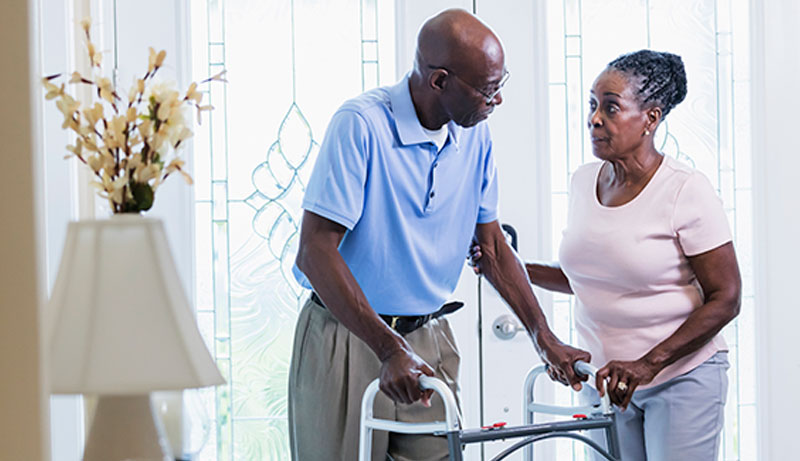
Take care of yourself as well as your loved one during the later stages of Parkinson’s disease.
A Parkinson’s diagnosis affects family members in addition to the person afflicted. Learning what to anticipate as the illness advances is paramount to being ready for the changes in the future and to making life the best it can be every single day.
Throughout the last few months, we have been sharing information what to anticipate in in the early and middle stages of Parkinson’s disease. Blog posts have included details about what family caregivers can do to best help a senior loved one with Parkinson’s, and how Morning Glory Home Care, the O’Fallon senior care experts, can help. In this final segment in the series, we offer information about caring for someone in the late stages of the disease.
Later Stage Parkinson’s
In the late stages of Parkinson’s disease, a significant degree of assistance becomes necessary with activities of daily living. By definition, the late stages of Parkinson’s are noted by the person’s inability to live independently. Initially, standing and walking may still be possible, however with marked difficulty, and as the condition continues to progress, the person will not be able to get out of bed or a chair without help.
In combination with a greater risk for falls, hallucinations and delusions are also common. As a result, full-time, day-and-night caregiving is necessary to ensure well-being.
The Effect of Late Stage Parkinson’s on Family Caretakers
At this point, the stress and day-to-day demands of caregiving usually take a toll on a caregiver’s own health. It is very important for family care providers to reach out and accept help, to continue to be socially connected, and to make respite care a number one priority. It’s simply not practical for one individual on their own to handle the around-the-clock care needed for a loved one in late stage Parkinson’s.
How Caregivers Can Help with Late Stage Parkinson’s Disease Care
With added hands-on care required, it’s important to understand how to safely and efficiently provide this help so that you can lower the chance of doing harm to either yourself or the person being looked after.
If the older adult isn’t already receiving physical therapy services, ask the doctor for a referral. The physical therapist, while helping improve the person’s ability level, may also advise family caregivers on the best techniques for hands-on assistance.
One new symptom that often appears in the later stages of Parkinson’s is freezing, when the person is suddenly (but temporarily) unable to move. Ways to help break a freezing episode include:
- Using a laser pointer and asking the person to step on the light
- Using a rhythmic sound, such as clapping, and encouraging the person to take one step with every clap
- Playing music and prompting the individual to walk to the beat
As always, stay close at hand once the person is mobile to avoid a fall.
Be sure to provide an abundance of extra time for daily activities such as getting dressed and eating, which are going to take longer now. This is important in preserving the person’s self-sufficiency. Even if it takes longer to accomplish a task, it’s always better to foster as much self-reliance as possible.
Emotional and mental health issues also may arise now, including anxiety, depression, memory problems, and dementia. These ailments can be extremely overwhelming for a family caregiver to manage and should be brought to the attention of a loved one’s physician.
Morning Glory Home Care’s exceptional caregiving team is here to help you and the senior you love through each stage of Parkinson’s. Particularly in these final stages of the disease, having a care partner you can trust and rely on is essential.
Reach out to us at 618-667-8400 for a complimentary in-home consultation to learn more about our O’Fallon senior care services and how we can ease the transitions through Parkinson’s for both you and the senior you love. Visit our Service Area page for a full list of the communities where we offer care.
